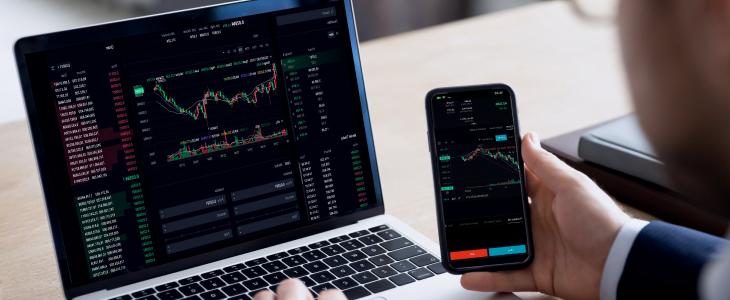
Forex trading, or foreign exchange trading, is the act of buying and selling currencies in the global market. This fast-paced and potentially lucrative venture has gained immense popularity over the years, particularly with the rise of online trading platforms. For those looking to dive into the world of forex, understanding the underlying principles, risks, and strategies is crucial. Among other resources, you might find forex and trading Forex Brokers in Cambodia particularly helpful in navigating your trading journey.
Understanding the Basics of Forex Trading
The forex market is the largest financial market in the world, with a daily trading volume exceeding $6 trillion. Unlike stock markets, where trading is restricted to exchanges, the forex market operates 24 hours a day, five days a week, allowing traders to buy and sell currencies at any time.
Currency pairs are at the core of forex trading. Each trade involves the simultaneous buying and selling of two currencies, known as a currency pair. For example, in the EUR/USD pair, if you believe the Euro (EUR) will rise against the US Dollar (USD), you would buy the pair. Conversely, if you expect the Euro to fall, you would sell it.
The Importance of Leverage in Forex Trading
One of the unique aspects of forex trading is the use of leverage. Leverage allows traders to control larger positions with a smaller amount of capital. For example, a leverage of 100:1 means that for every $1 you invest, you can control $100 in the market. While leverage can magnify profits, it can also lead to significant losses, making it a double-edged sword. Therefore, understanding how to use leverage responsibly is vital for long-term success.
Key Strategies for Successful Forex Trading
1. Technical Analysis

Technical analysis involves the examination of historical price data to identify patterns and trends. Traders use various tools, such as charts, indicators, and oscillators, to help forecast future movements. Popular indicators include Moving Averages, Relative Strength Index (RSI), and Bollinger Bands. Successful traders often develop their unique strategies based on technical analysis that suit their trading style.
2. Fundamental Analysis
Fundamental analysis, on the other hand, focuses on the underlying economic, social, and political factors that influence currency values. This might involve analyzing economic indicators such as GDP growth, unemployment rates, and interest rates. Keeping an eye on global news and events can help traders anticipate market movements and make informed trading decisions.
3. Trend Following
Trend following is a timeless strategy that involves identifying and riding the existing market trends. Traders using this method buy when they see uptrends and sell during downtrends. This approach can help minimize risks by ensuring that trades align with the broader market direction.
4. Scalping
Scalping is a short-term trading strategy that involves making numerous trades throughout the day to profit from small price movements. Scalpers often hold positions for just a few minutes and rely on high leverage to amplify their gains. This strategy requires quick decision-making and significant time commitment.
5. Risk Management
Regardless of the chosen strategy, effective risk management is essential in forex trading. This includes setting stop-loss orders to limit potential losses, diversifying your trading portfolio, and carefully determining the size of each trade based on your overall capital. A well-thought-out risk management plan can prevent significant losses and protect your trading capital.

Understanding the Risks Involved
Forex trading carries several risks that every trader should acknowledge. The most significant risks include market risk (the risk of losing money due to unfavorable market movements), liquidity risk (the risk of not being able to buy or sell assets quickly enough), and leverage risk (the risk of amplified losses due to the use of leverage).
It’s essential to approach forex trading with a clear understanding of these risks. Educating yourself about the market, developing robust trading strategies, and implementing strict risk management techniques can significantly reduce the chances of substantial losses.
Choosing a Forex Broker
Selecting a trustworthy forex broker is crucial for trading success. When choosing a broker, consider factors such as regulation, trading fees, available trading platforms, and customer service. A transparent and reliable broker can provide valuable resources, tools, and support to help you navigate the complexities of trading.
Researching Forex Brokers in Cambodia can offer insight into locally available brokers that might meet your trading needs while providing access to the global market.
Conclusion: Embracing the Forex Trading Journey
Forex trading can be a rewarding yet challenging endeavor. With the right knowledge, strategies, and risk management practices, traders can navigate the complexities of the market and work toward achieving their financial goals. As you embark on your forex trading journey, remember to stay informed, embrace continuous learning, and adapt to changing market conditions. With dedication and perseverance, you can potentially unlock the opportunities that the forex market has to offer.
